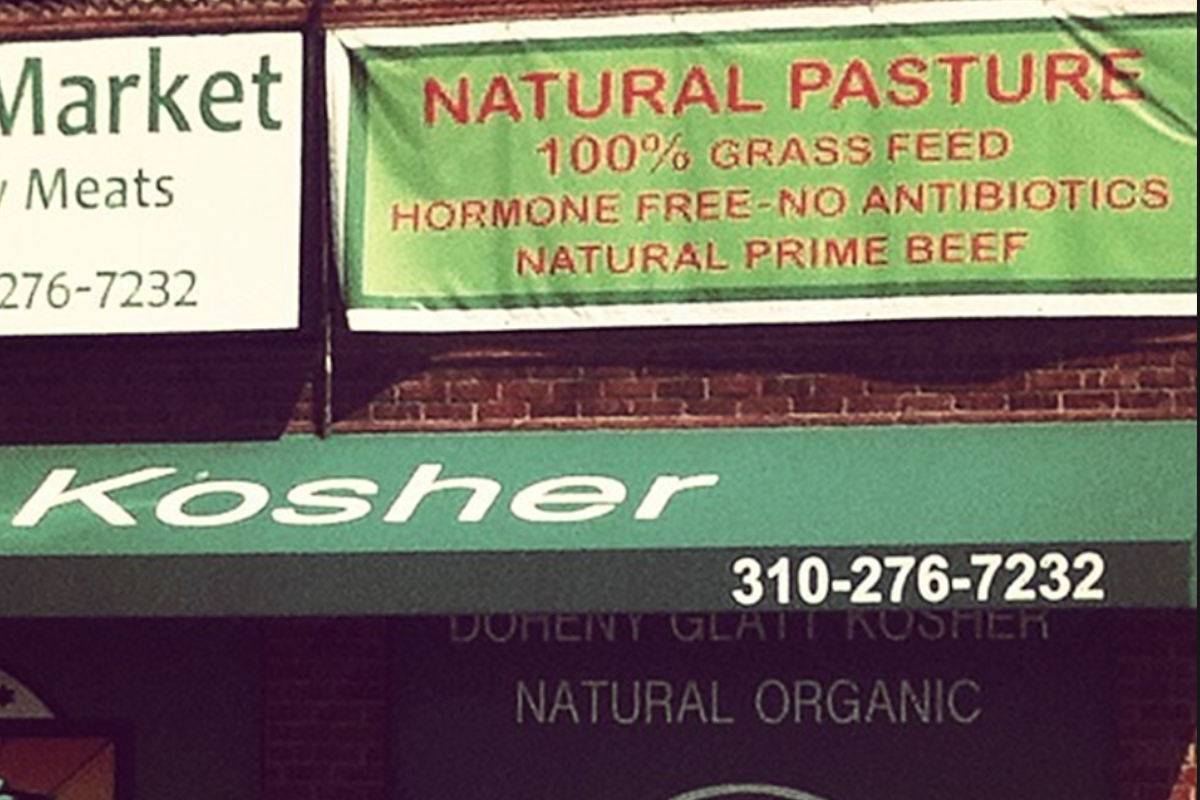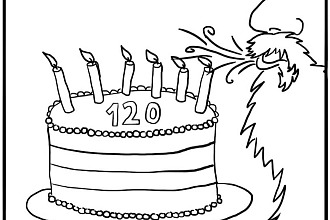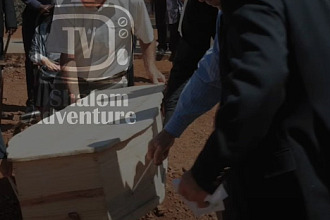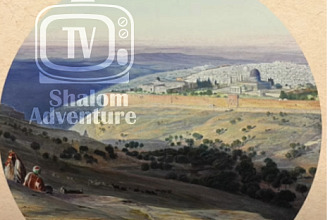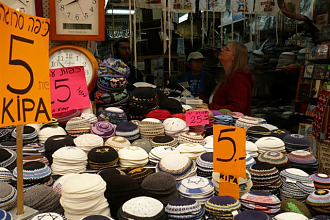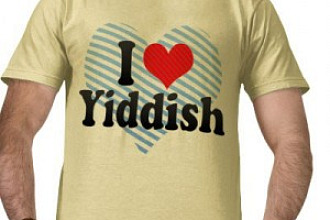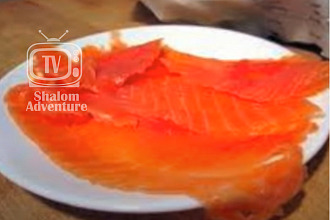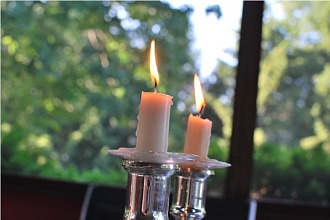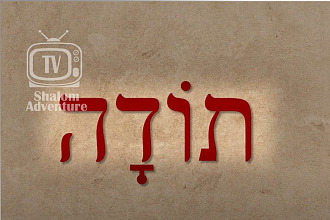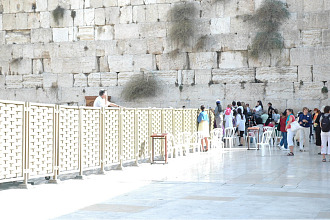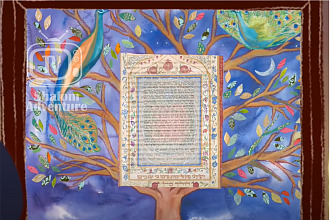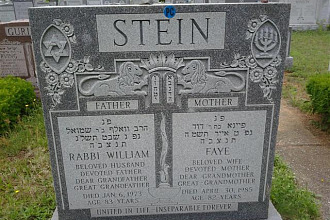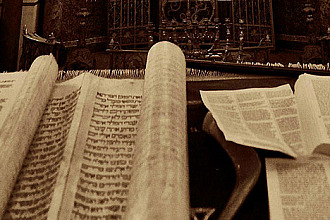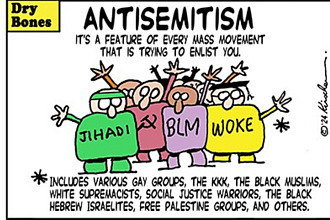Have you ever wondered what a shochet is? It is known that Torah observant believers keep a special tradition to avoid certain kinds of animals, such as pigs, shell fish, and other creatures forbidden by the Torah in Leviticus 11.
There are, of course, some animals those who follow the Torah are allowed to eat, but these must be slaughtered properly to ensure another specification for diet in the Torah is followed. “You must never eat any fat or blood. This is a permanent law for you, and it must be observed from generation to generation, wherever you live.” Leviticus 3:17 “‘”For the life of a creature is in the blood, and I have given it to you on the altar to make atonement for yourselves; for it is the blood that makes atonement because of the life.” This is why I told the people of Isra’el, “None of you is to eat blood, nor is any foreigner living with you to eat blood.”’” Leviticus 17:11-12
The person in the Jewish community responsible for this task of ensuring animals are butchered properly to remove blood is known as the shochet and must be properly trained for this role(“Judaism”, n.d). The Hebrew word for the traditional Jewish butchering process is called shechitah. In Jewish tradition, the goal for the shochet is not to simply reduce the blood content of the meat, but to ensure the animal dies as painlessly as possible. Tradition insists that a very sharp knife be used so major arteries and nerves in the throat can be cut quickly so the animal doesn’t suffer too long while rapidly removing the blood from its body. If this is not done properly the animal will not be considered kosher to eat. (“Jewish Dietary Laws…”,n.d).
What does the Torah mean when it says life “is in the blood, and I have given it to you on the altar to make atonement for yourselves”? The Torah says that after creation Adonai, God, gave Adam and Eve this order: “You may freely eat from every tree in the garden except the tree of the knowledge of good and evil. You are not to eat from it, because on the day that you eat from it, it will become certain that you will die.’” Genesis 2:16-17 However, Adam and Eve did not obey, and after that God provided humans with a sacrificial system in which the sinner substituted the blood of another being for atonement.
“If the sin which he committed becomes known to him, he is to bring as his offering a male goat without defect, lay his hand on the goat’s head and slaughter it in the place where they slaughter the burnt offering in the presence of Adonai; it is a sin offering.” Leviticus 4:32. “‘If he brings a lamb as his sin offering, he is to bring a female without defect, lay his hand on the head of the sin offering and slaughter it as a sin offering in the place where they slaughter burnt offerings.’” Leviticus 4:32-33 “‘If he can’t afford a lamb, he is to bring as his guilt offering for the sin he committed two doves or two young pigeons for Adonai — the one as a sin offering and the other as a burnt offering.’” Leviticus 5:7. David wrote something amazing that shows us what this tradition teaches us about God. “Iniquities prevail against me; as for our transgressions, You will provide atonement for them.” Psalm 65:3
The Jewish prophet Isaiah wrote, “For unto us a Child is born, unto us a Son is given; the government will be upon His shoulder. And His name will be called Wonderful, Counselor, Mighty God, Everlasting Father, Prince of Peace.” Isaiah 9:6. And of God’s servant it is written, “Who has believed our report? And to whom has the arm of the Lord been revealed? For He shall grow up before Him as a tender plant, and as a root out of dry ground. He has no form or comeliness; and when we see Him, there is no beauty that we should desire Him. He is despised and rejected by men, a Man of sorrows and acquainted with grief. And we hid, as it were, our faces from Him; He was despised, and we did not esteem Him. Surely He has borne our griefs and carried our sorrows; yet we esteemed Him stricken, smitten by God, and afflicted. But He was wounded for our transgressions, He was bruised for our iniquities; the chastisement for our peace was upon Him, and by His stripes we are healed. All we like sheep have gone astray; we have turned, every one, to his own way; and the Lord has laid on Him the iniquity of us all.” Isaiah 53:1-6
We pour out the blood of the meat we eat as a constant reminder that our lives are being sustained by the life of another that does not belong to us, and we should not take that lightly. Acknowledging that the life we live is because of the blood of another helps discourage our tendency to indulge in a sense of entitlement, and increases our dependence on God. We respect blood as a reminder of how valuable we are to God and it helps us to be grateful for the atonement God grants us by the sufferings of His servant the Messiah.
References:
- Author Unknown n.d “Jewish Dietary Laws (Kashrut): Ritual Slaughter – Shechitah” received from http://www.jewishvirtuallibrary.org/jewish-ritual-slaughter-shechitah
- Author Unknown “Judaism” New World Encyclopedia received from http://www.newworldencyclopedia.org/entry/Judaism#Life-cycle_events

